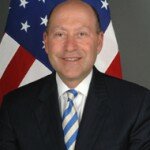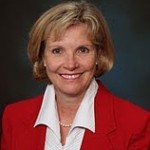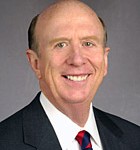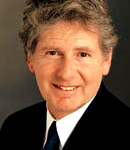The Economist magazine has noticed the demise of the “Three Amigos” approach to North America in an article posted today, “The push for deeper ties peters out”:
” …Since then the drive for integration has ground to a halt. The “three amigos”, as their leaders were once dubbed, could not find time to meet last year, and the session scheduled for February 26th has been cancelled. When Barack Obama and Stephen Harper, Canada’s prime minister, announced on February 4th that they were exploring ways to harmonise regulations and co-ordinate security—plans that had previously been discussed trilaterally—they did not mention Mexico.”
I wrote about this development in more detail back in June in Maclean’s magazine, in an article entitled, “The end of North American trilateralism”:
On a sunny August morning in 2007, while protesters were cordoned off by a security perimeter and reporters corralled into a side room, a high-powered meeting took place inside Quebec’s woodsy Château Montebello. On one side of a square meeting table sat Prime Minister Stephen Harper and his aides. On another sat then-U.S. president George W. Bush and his entourage, and on a third, the delegation of Mexican President Felipe Calderón. On the fourth side, in a rare position to hold the simultaneous attention of all three leaders of North America, sat the CEOs of corporate titans like Wal-Mart, Lockheed Martin, the Campbell Soup Co. and Procter & Gamble—each armed with a wish list of ways to change economic and trade regulations to increase profit and efficiency.
The occasion was the annual “three amigos” summit, a ritual that had begun in 2005 when Bush invited his counterparts to meet and address concerns that security had trumped trade in the years since 9/11. The three leaders created 20 working groups of bureaucrats, hammering away on issues from harmonizing regulations to developing pandemic preparedness plans. The effort, called the Security and Prosperity Partnership (SPP), was meant to continue North American economic integration where NAFTA had left off.
But after the reports were written and communiqués issued, a funny thing happened: that is to say, not much. Or, rather, something big happened: the election of Barack Obama. The SPP had withstood the transition from Paul Martin to Stephen Harper and from Vicente Fox to Felipe Calderón. But at the first trilateral summit attended by Obama last summer in Guadalajara, Mexico, the leaders shut it down.
Although the leaders identified 10 priority areas, the results of the ad hoc process, if it can be called a process at all, have been negligible, according to Chris Sands, a senior fellow at the Hudson Institute, a Washington think tank, and Greg Anderson, a political scientist at the University of Alberta in Edmonton, who have concluded that little headway has been made on any of the 10 agenda items.
This year would have marked Harper’s turn to host another trilateral summit, but no date has been announced. Washington wasn’t interested and absent a senior White House point person on the issue, there is no momentum. “The thing that is really damaging if we don’t have a summit is the signalling to the bureaucracy that North America can wait,” said Anderson, “that there are other fish to be fried.”
What killed the SPP?…
Read the entire article here.
***
You can follow me on Twitter at luizachsavage
 On Mitt's big night and Clint's empty chair: https://t.co/XF1z6paX - posted on 31/08/2012 01:36:36
On Mitt's big night and Clint's empty chair: https://t.co/XF1z6paX - posted on 31/08/2012 01:36:36

















